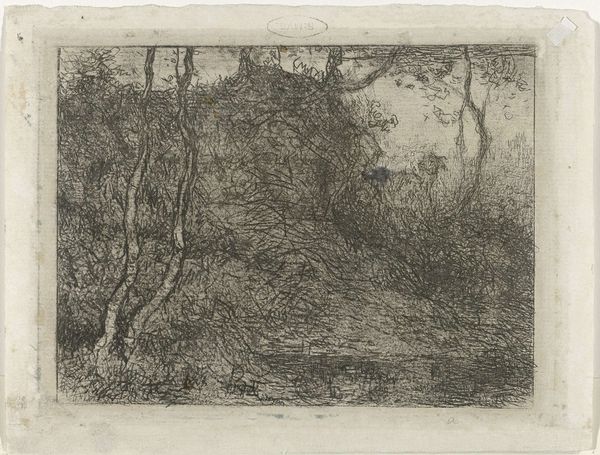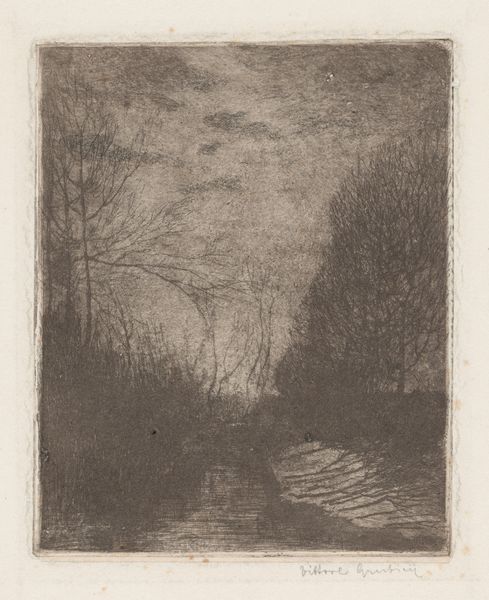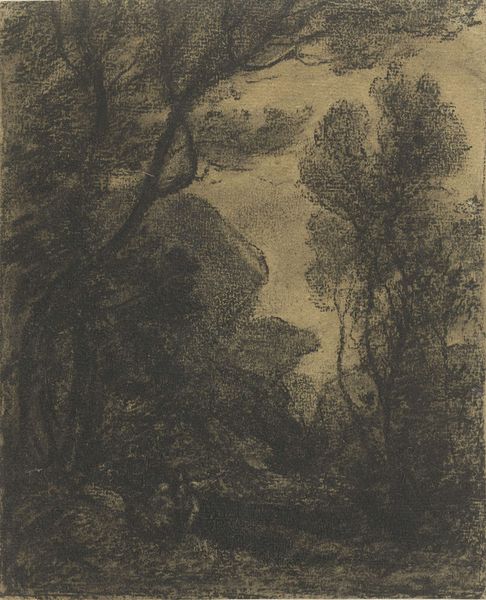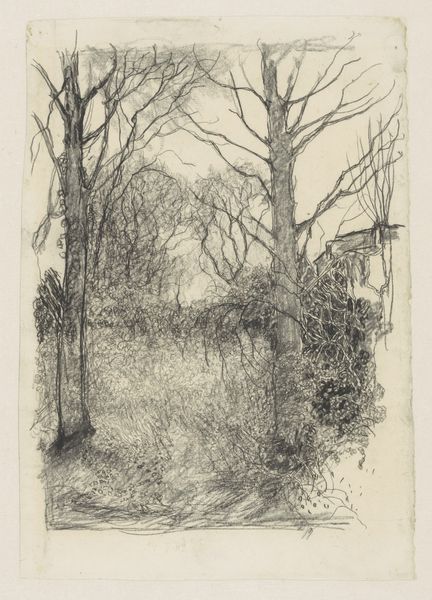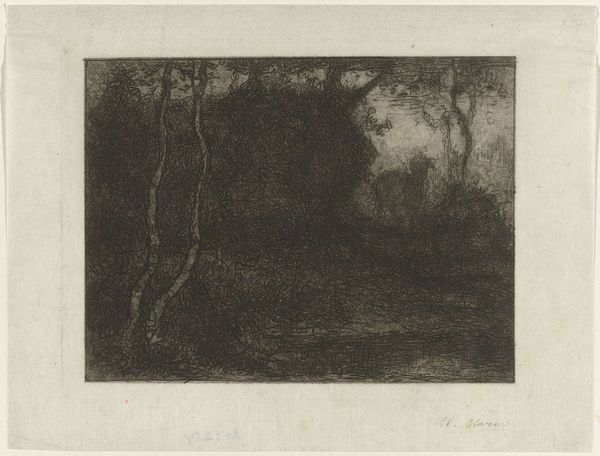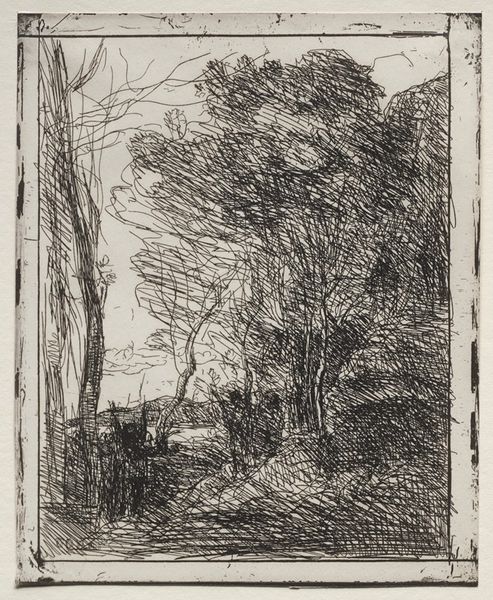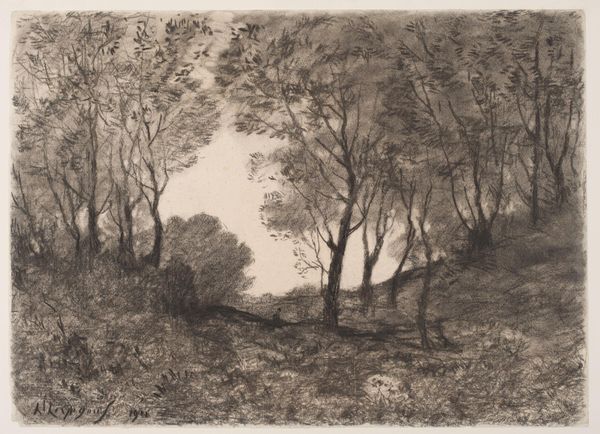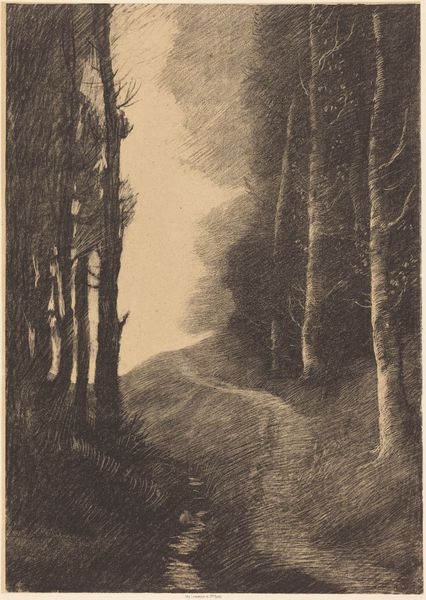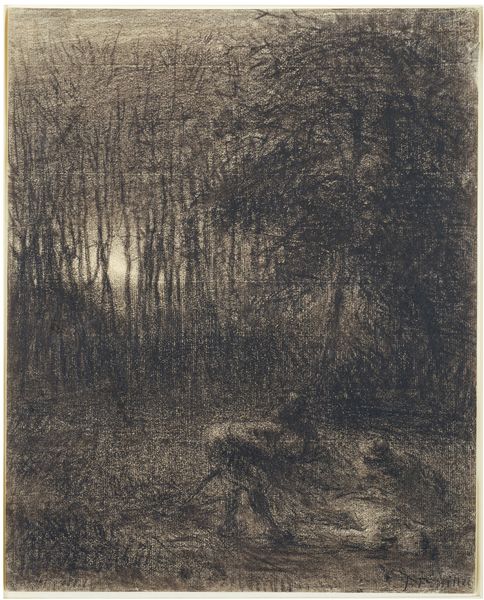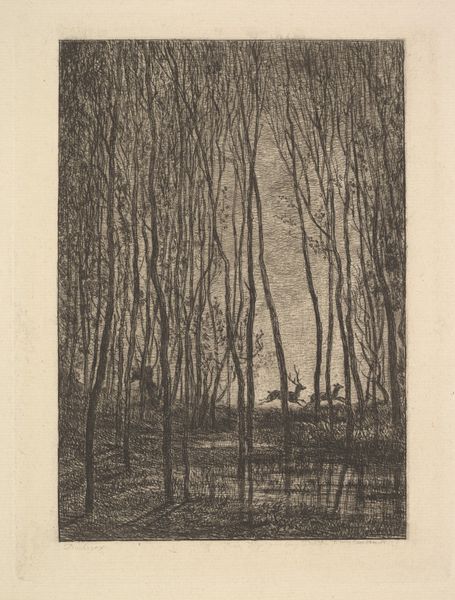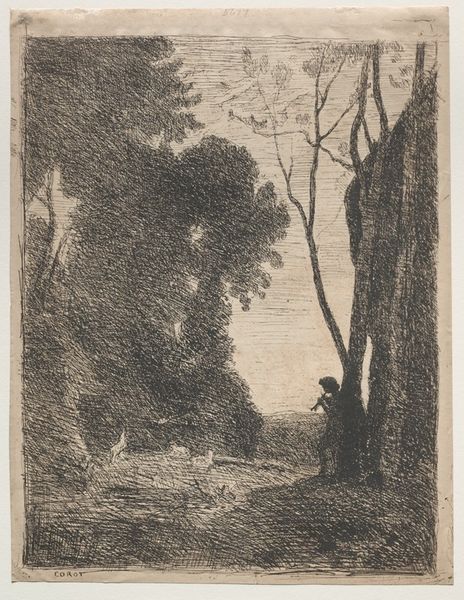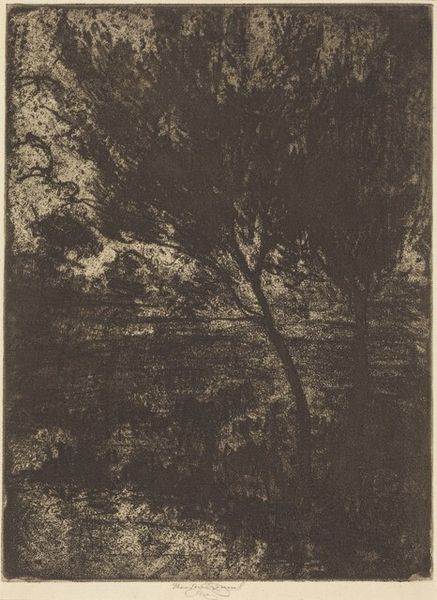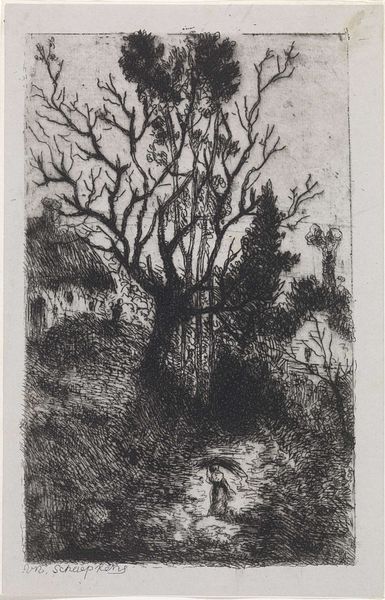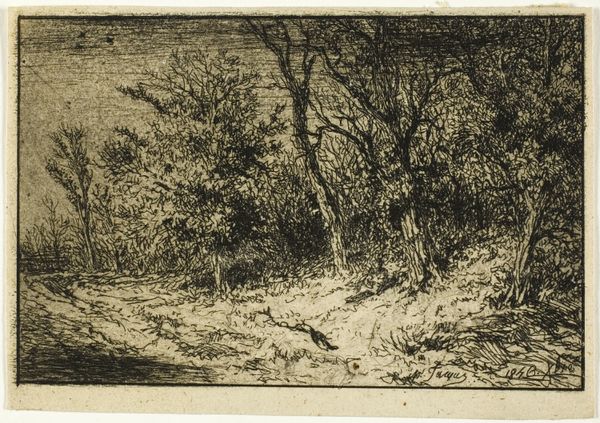
drawing, pencil, graphite
#
drawing
#
landscape
#
pencil drawing
#
forest
#
pencil
#
graphite
#
realism
Dimensions: height 132 mm, width 96 mm
Copyright: Rijks Museum: Open Domain
Mosè di Giosué Bianchi created this small print, titled "Bosgezicht," using etching, sometime between 1850 and 1900. The etching process begins with a metal plate, typically copper or zinc. The artist covers the plate with a waxy, acid-resistant ground, then draws an image with a sharp needle, exposing the metal. When the plate is dipped in acid, the drawn lines are etched into the surface. This plate can then be inked and printed, transferring the image onto paper. Look closely, and you'll notice the dense, tangled lines. The etching medium lends itself particularly well to capturing the nuances of light and shadow in the forest. Each line has a handcrafted quality, yet because of the possibility of reproducing the image, there's also an inherent relationship to early industrial production and the art market. This work blurs the line between fine art and craft, reminding us that every artwork has a history of making embedded within it.
Comments
No comments
Be the first to comment and join the conversation on the ultimate creative platform.
